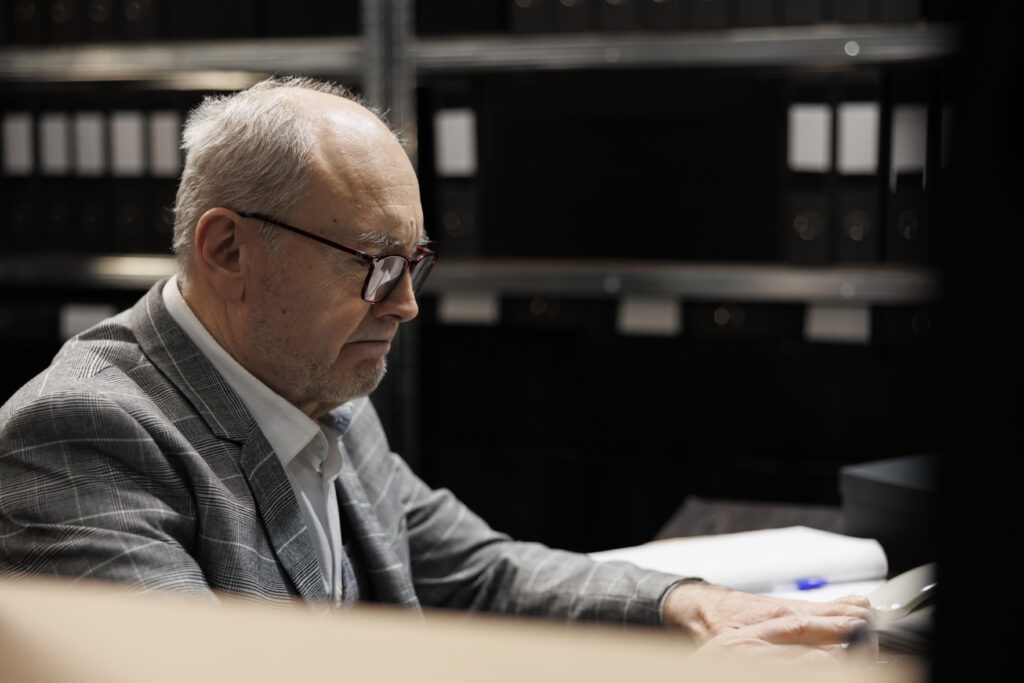How Forensic Psychologists Help In Legal Cases?
Forensic psychologists are important in the legal system, but people often don’t understand their role because TV shows and movies make it seem more exciting than it is. In reality, they do many different things like giving expert opinions in court, doing evaluations, and talking with lawyers to help understand complex legal issues. It’s crucial for lawyers and clients to know what forensic psychologists do so they can get the best help in legal cases. This article explains the different parts of their job and why they are so important for a fair legal system.

What Do Forensic Psychologists Do?
One of the most common questions asked by clients or attorneys when seeking the best support for their legal cases is, “Who exactly are forensic psychologists?” Contrary to the dramatic portrayals on crime shows, forensic psychologists play a crucial role in various aspects of the legal process. Here’s a closer look at what they’re responsible for:
Expert Witnesses
- Providing Testimony: Forensic psychologists can serve as expert witnesses in family, civil, and criminal courts. They provide both factual testimony and clinical opinions, sharing their educational background, curriculum vitae (CV), and relevant clinical and forensic experience. Before testifying, they must be qualified as experts with the judge’s approval.
- Types of Testimony: They may testify as general experts on specific topics or as experts specific to the parties and case if they have treated or evaluated someone involved. Sometimes, they act as fact witnesses, describing their observations without offering opinions.
General Expert Consultation
- Research and General Science: Attorneys can retain psychologists to discuss research or the general state of science on a topic. In these instances, the psychologist acts as a general expert, not having met with any parties involved in the case. For example, a psychologist specializing in childhood trauma can inform the court about trauma symptoms and their relevance to the case.
- Topic-Specific Insights: Psychologists can explain and define concepts like parental alienation, describe how these issues manifest, and their significance to the legal matter at hand.
Forensic Evaluations
- Objective Evaluations: As expert witnesses and evaluators, forensic psychologists are often hired for specific legal matters. They provide objective answers through written evaluations and oral testimony.
- Evaluation Components: Forensic evaluations typically include clinical interviews, collateral interviews (e.g., with treatment providers, family, friends), psychological testing, and thorough record reviews. Records may include legal documents, mental health records, depositions, emails, texts, and social media posts. The content and tests selected vary based on the court and referral questions.
Treating Psychologists
- Fact Witness Role: Psychologists serving as individual therapists for plaintiffs, defendants, or other court-involved parties can testify as fact witnesses. They provide insight into the treatment course but cannot offer clinical opinions unless sworn in as expert witnesses.
- Clinical Opinions: For therapists to provide their clinical opinions, such as determining if a defendant was insane at the time of an offense, they must be qualified and sworn in as expert witnesses.
Forensic psychologists contribute significantly to the legal system by offering expert opinions, conducting thorough evaluations, and providing factual testimony. Their expertise helps ensure that legal decisions are informed by accurate psychological insights.

Family Court
Psychologists play a crucial role in family court, providing essential services that assist attorneys and judges in various cases, including divorce, custody, guardianship, and legal capacity. Their expertise helps ensure the best outcomes for all parties involved. Here’s how psychologists contribute:
- Custody Evaluations: Psychologists conduct comprehensive custody evaluations to determine the most suitable custody arrangements for parents and children. These evaluations focus on the well-being of the children and the parenting capabilities of each parent.
- Parental Capacity Evaluations: These assessments evaluate an adult’s ability to safely and effectively parent their children. They consider various factors, such as the parent’s mental health, parenting skills, and overall stability.
- General Psychological Evaluations: Forensic psychologists perform evaluations on both children and adults to provide clinical insights and treatment recommendations to the court. This can include personality tests, assessments of parental stress, substance use, or anger issues.
- Competency Determinations: Family courts often require evaluations to determine an individual’s competency in making medical, financial, or legal decisions. Psychologists use intelligence, memory, and cognitive tests to assess specific capacities for different types of decision-making.
By conducting thorough evaluations, forensic psychologists offer valuable clinical opinions and diagnostic impressions. Their input helps the court make informed decisions that prioritize the best interests and safety of the children and the overall family dynamics.

Civil Court
Civil courts handle a broad range of cases, offering numerous opportunities for psychologists to provide expert opinions. Here are some crucial areas where their expertise proves invaluable:
- Emotional Distress and Mental Health Issues: Psychologists frequently testify about the emotional distress and mental health problems experienced by plaintiffs. They use personality tests and trauma inventories to assess and clarify the extent of these issues, helping the court understand the psychological impact on the individuals involved.
- Immigration Evaluations: Another common request in civil court is for psychologists to conduct immigration evaluations. These assessments are crucial in determining the mental health status of individuals seeking asylum or other immigration relief, ensuring that the court has a comprehensive understanding of the applicant’s psychological state.
By leveraging their specialized skills, psychologists play a pivotal role in shedding light on complex mental health issues within the civil court system, aiding in fair and informed decision-making.

Criminal Court: The Role of Psychologists
In criminal court, psychologists play a crucial role, often being court-appointed to perform various evaluations. Their tasks typically include:
- Competency Evaluations: Psychologists assess whether a defendant can understand the trial process and assist in their defense. This involves:
- Tests of personality and psychological functioning.
- Specific competency assessments.
- Malingering tests with validity scales to ensure honesty.
- General Psychological Evaluations: These assessments provide a comprehensive overview of an individual’s mental health.
- Risk Assessments: Psychologists evaluate the likelihood of future violence or sexual offenses. This includes:
- Gauging risk factors.
- Providing specific recommendations for treatment.
- Offering strategies for risk reduction to enhance community safety and aid the defendant.
Contrary to popular belief and media portrayals, the “insanity defense” is invoked in only one percent of cases. However, forensic psychologists are well-equipped to evaluate an individual’s mental state at the time of the offense, offering critical insights that can influence the outcome of a trial.
Conclusion
This article explored various ways psychologists play crucial roles in legal cases, primarily as expert witnesses rather than fact witnesses. The examples provided are not exhaustive, and the involvement of psychologists in the legal system is expanding. Legal professionals are increasingly seeking psychologists’ insights on complex and sometimes ambiguous issues concerning individuals, families, and capacity for change. Forensic psychologists have the training and expertise to help courts make well-informed decisions impacting many people. If you are a legal professional or a court-involved client, consider consulting a forensic psychologist for objective and fair representation.

